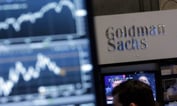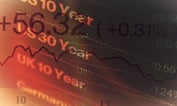Barry Ritholtz doesn’t hate smart beta, but one could definitely call him a skeptic.
ETF.com CEO Dave Nadig sat down with Ritholtz, chief investment officer of Ritholtz Wealth Management, during the Inside Smart Beta conference in New York City to find out why Ritholtz is a skeptic of smart beta and why he hasn’t poured client assets into these strategies.
Here are some highlights from that conversation.
Ritholtz explained his investment philosophy, and why good investing is boring.
Ritholtz’s philosophy: Behavior is more important than individual stock picks and asset allocation.
“You can have the greatest portfolio ever, and if you panic in March ’09 and sell, and don’t get back in because the markets run away from you, it doesn’t matter how good your portfolio is,” he explained.
Ritholtz said that his firm tries to make sure clients understand very early in the process how important it is not to be their own worst enemy. At the same time, they combine this education with financial planning.
“By the time we get to the question of: ‘What should my portfolio look like?’ You’re not fetishizing alpha, you’re aiming for specific financial outcomes down the road that meet your retirement, generational wealth transfer, philanthropic needs,” Ritholtz explained.
According to Ritholtz, the people that are thinking “I’m looking for a specific Sharpe ratio and here’s the sort of returns I want” are probably not going to be the best fit for the firm.
“Other people say: ‘Here’s where I want to be in 5, 10, 20 years. How can you help me get there?’ That’s the sort of client where alpha and beta don’t matter as much as creating a portfolio that matches exactly what they’re looking for,” Ritholtz explained.
When Nadig interjected that this philosophy sounded “really boring” and “dull,” Ritholtz agreed with him.
“Good investing should be boring as s—,” Ritholtz explained. “If you’re investing is exciting, you should be at the racetrack or Vegas because you’re not investing. Speculation is exciting. Gambling is exciting. Good investing, boring as hell.”
True smart beta should be called fundamental indexing, according to Ritholtz.
Some papers say there are 500 factors, whereas other research says there could be up to 1,400 factors, Ritholtz said.









 June 08, 2018 at 04:13 PM
June 08, 2018 at 04:13 PM










